Let’s face it, the world can be complicated. And at a time when information is more readily available than ever, finding the right information often seems like it’s more difficult than ever before. That’s why we’ve rounded up some of the best science books around that can help you understand everything from plastic to forensic science and help get a handle on our wild, weird, and wonderful world.
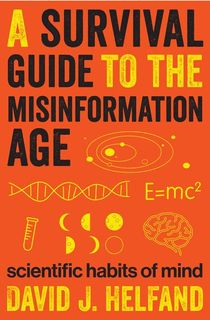
A Survival Guide to the Misinformation Age
Are we living in an “infodemic?” Author and astronomer David J. Helfand argues that we are, but fortunately he may have the cure in this “vital antidote to the ills of misinformation” which teaches “systemic and rigorous scientific reasoning” in a way that is designed to be fun and approachable, even for the layperson (The Times Literary Supplement).
With more information at our fingertips than ever before, being able to sift the legitimate from the fake is a skill that grows more vital every day, and this book aims to be an indispensable guide to help you judge for yourself.
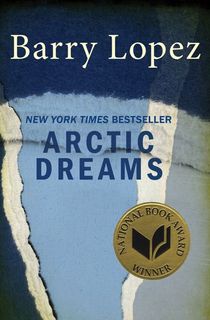
Arctic Dreams
There are relatively few portions of the surface of our world about which we still know very little, and among those the Arctic is one of the last remaining frontiers. As forbidding as it is beautiful, this frozen realm is one that most of us will never visit.
And yet, we can go there in spirit with help from “the nation’s premier nature writer” (San Francisco Chronicle) in this National Book Award-winning New York Times bestseller, which follows Barry Lopez on a years-long sojourn among the Arctic regions, giving us insight into places most humans have never seen, and also into the uncharted terrain of our own minds.
Related: 13 Nature Books That'll Help You See the Beauty in Every Day
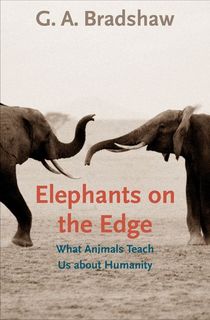
Elephants on the Edge
At one time, there were more than ten million elephants on Earth. Now, there are only a few hundred thousand. Yet, if we lose these animals, we’ll lose more than just another vital piece of our global ecosystem. We’ll lose opportunities to learn, not just about the natural world, but about ourselves.
That’s what author G. A. Bradshaw demonstrates in this book that “opens the door into the soul of the elephant” (Temple Grandin, author of Animals in Translation). Through a combination of research into subjects as diverse as neuroscience and animal behavior, and accounts from around the world, Bradshaw paints a portrait not only of the elephant but of our place in the natural world.
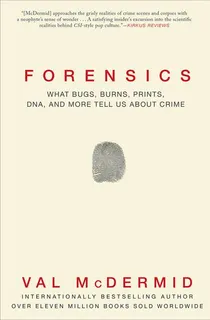
Forensics
Bestselling Tartan Noir author Val McDermid pulls back the curtain on real-life forensic science in this “fascinating” (The Boston Globe) book that tracks the history of crime scene investigation from its earliest beginnings to the most cutting-edge breakthroughs.
McDermid shows how maggots collected from a corpse can reveal time of death, traces the history of DNA evidence, and travels from war zones to mass graves, from the scenes of devastating fires to the autopsy suites of the local morgue, and far beyond. For anyone with a fascination for crime fiction or simply an interest in what happens to our bodies after we die, this book is a must-read.
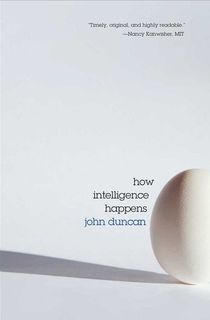
How Intelligence Happens
What sets humans apart from the rest of the animal kingdom? John Duncan is “one of the world’s leading cognitive neuroscientists” (The Wall Street Journal), and in this wide-ranging book he explores theories about how human intelligence took shape, what it means for us today, and what it could mean for the future of everything from cognitive development to artificial intelligence.
From the earliest foundations of psychology to studies of how brains change after trauma or damage to the earliest (and most recent) attempts to build thinking computers, Duncan searches for not only the roots of human intelligence, but its future, as well.
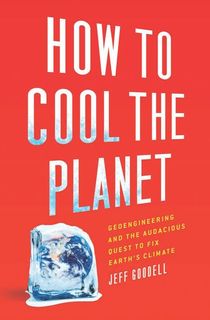
How to Cool the Planet
Global warming is one of the greatest existential threats that the world – and those of us who live on the world – face right now. And such an unprecedented challenge requires unprecedented ingenuity to solve it.
That’s what Jeff Goodell argues in this “quick, enjoyable read through a complex, timely topic. And after you read it, you’ll never look at the sky or the ocean – or Earth, really – in quite the same way again.” (The Christian Science Monitor)
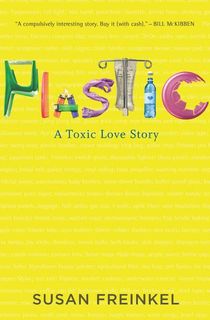
Plastic
“Freinkel’s smart, well-written analysis of this love-hate relationship is likely to make plastic lovers take pause, plastic haters reluctantly realize its value, and all of us understand the importance of individual action, political will, and technological innovation in weaning us off our addiction to synthetics.”
So says Publishers Weekly about this “rigorous, smart, inspiring” (designer Karim Rashid) book, which aims to explore the modern world’s love affair with plastics, what it has cost us, and where we can go from here. By following eight familiar plastic objects, many of them ones that we use every day, “she manages to render the most dull chemical reactions into vigorous, breathless sentences.” (SF Gate)
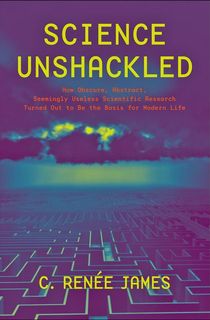
Science Unshackled
In Science Unshackled, C. Rene James explores a subject most of us know nothing about—the world of “basic research,” scientific studies into obscure, seemingly useless phenomena, revealing how these studies have actually led to major breakthroughs that have reshaped everyday life.
From poisonous cone snails to the chemical makeup of the sun, James charts the path from “pointless” research to advances such as WiFi, GPS, pain medications, and cancer treatment, all while giving an “entertaining, informative, and thought-provoking” (John M. Henshaw, author of A Tour of the Senses) look into the world of “pure science.”
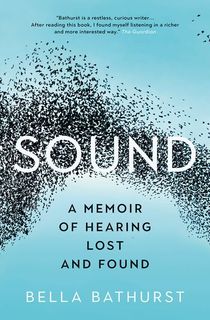
Sound
Somerset Maugham Award-winning author Bella Bathurst lost her hearing for twelve years before regaining it again. In this “moving and fascinating book” (Financial Times), she combines scientific research, personal memoir, and interviews with ordinary people who have lost their hearing, to produce a look at our complex relationship with the sounds that most of us take for granted. This is one that will leave you “listening in a richer and more interested way” (The Guardian).
Related: 15 Best Memoirs That Will Change Your Outlook on Life
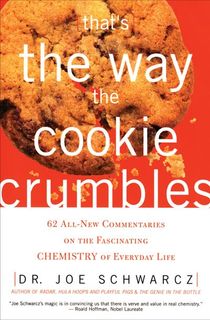
That's the Way the Cookie Crumbles
Taking its title from the relationship between gluten and trans-fatty acids in determining how, well, cookies crumble, this “fascinating” and “accessible” book (Montreal Review of Books) explores the often-unexpected ways that chemistry plays a role in our everyday lives.
Topics covered range from aspartame in food to how one goes about walking on hot coals, the secret inks used by spies to bug juice that is used to color ice cream, and much more.
